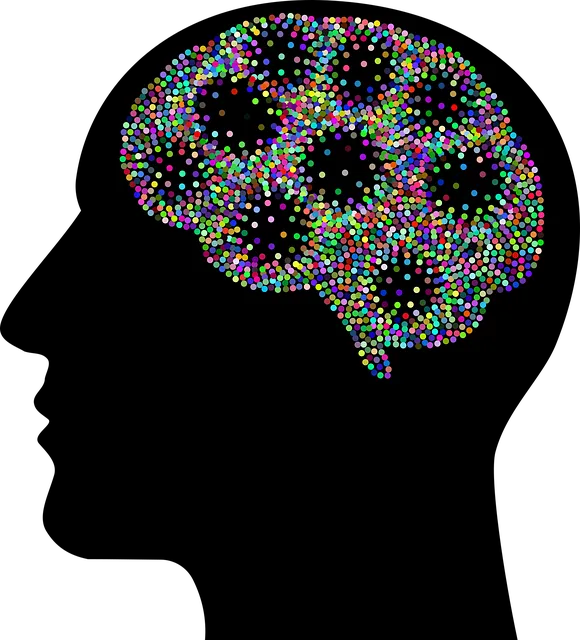Community outreach programs like those at the Golden Kaiser Permanente mental health appointment center are crucial in expanding access to mental healthcare for diverse populations. By addressing cultural sensitivities, transportation issues and knowledge gaps, these centers bridge care gaps. Their innovative strategies, such as podcasts and tailored programs, improve mental wellness support in underserved communities. The model emphasizes integrated care, patient-centered approaches, and risk management planning, leading to better mental health outcomes. Building trust through culturally sensitive engagement, transparent communication, and community leadership is key to success. These initiatives break down barriers like stigma and limited access, fostering healthier communities. Evaluating KPIs beyond attendance measures the impact of programs like stress reduction workshops and mindfulness meditation on emotional well-being and community attitudes towards mental health.
Community outreach programs play a pivotal role in enhancing access to mental health services, especially in underserved areas. This article delves into the significance of such initiatives, drawing inspiration from the successful Golden Kaiser Permanente model, which seamlessly integrates care within community settings. We explore strategies for effective implementation, focusing on building trust and fostering engagement. Additionally, we discuss tackling barriers like stigma and limited access, and present evaluation metrics to gauge the impact of community outreach programs, including Golden Kaiser Permanente’s mental health appointment centers.
- Understanding Community Outreach: Why It Matters for Mental Health Services
- The Golden Kaiser Permanente Model: A Case Study in Integrated Care
- Strategies for Effective Implementation: Building Trust and Engagement
- Overcoming Barriers: Addressing Access and Stigma in Underserved Communities
- Measuring Success: Evaluation Metrics for Impactful Community Outreach Programs
Understanding Community Outreach: Why It Matters for Mental Health Services

Community outreach programs play a pivotal role in enhancing mental health services and ensuring their accessibility to diverse populations. Understanding the local community’s unique needs is essential, as mental health challenges can vary greatly from one region to another. Golden Kaiser Permanente mental health appointment centers recognize this importance, utilizing their resources to extend services beyond traditional clinic settings. By implementing outreach initiatives, these centers aim to bridge the gap between care and those who may be hesitant or unable to access professional support.
This strategy is particularly significant in reaching underserved communities, where barriers to mental healthcare might include cultural sensitivities, limited transportation, or a lack of awareness about available services. The Golden Kaiser Permanente approach, which could inspire similar initiatives across various health organizations, includes producing the Mental Wellness Podcast Series Production to educate and engage listeners on relevant topics. Additionally, these centers often offer tailored programs like Stress Reduction Methods and Trauma Support Services, ensuring comprehensive care that addresses a wide range of mental health concerns within the community.
The Golden Kaiser Permanente Model: A Case Study in Integrated Care

The Golden Kaiser Permanente Model serves as a shining example of integrated care, demonstrating how comprehensive community outreach programs can significantly impact mental health services. This innovative approach integrates physical and mental healthcare, creating a holistic system that addresses both the body and mind. By establishing a dedicated mental health appointment center within their facilities, Kaiser Permanente has revolutionized access to care. The model prioritizes patient-centered care, encouraging individuals to take charge of their well-being through Self-Care Routine Development for Better Mental Health.
This integrated strategy not only enhances mental health outcomes but also implements robust Risk Management Planning for Mental Health Professionals. By fostering a collaborative environment, Kaiser Permanente ensures that patients receive consistent and high-quality care. The success of this model underscores the importance of Mental Health Awareness and shows how community outreach initiatives can be game-changers in transforming lives and communities.
Strategies for Effective Implementation: Building Trust and Engagement

Building trust is a cornerstone of successful community outreach programs, especially when addressing mental health concerns within diverse populations. Organizations like Golden Kaiser Permanente’s mental health appointment center understand the importance of cultural sensitivity and engagement to ensure their initiatives resonate with targeted communities. One effective strategy involves tailored communication that acknowledges and respects unique cultural beliefs and practices. This might include employing interpreters or culturally competent staff who can facilitate meaningful conversations, ensuring appointments are accessible, and respecting privacy within specific cultural contexts.
Additionally, fostering trust through transparent practices is vital. Providing clear information about the outreach program’s goals, benefits, and potential outcomes helps dispel misconceptions and encourages participation. Engaging community leaders and respected figures from diverse backgrounds can also act as ambassadors, advocating for the program and helping to build a sense of collective responsibility and investment in its success, ultimately strengthening the partnership between healthcare providers like Golden Kaiser Permanente and the communities they serve.
Overcoming Barriers: Addressing Access and Stigma in Underserved Communities

In underserved communities, implementing community outreach programs aimed at mental health awareness and support is a critical step toward overcoming barriers that often prevent individuals from seeking help. Many residents face challenges such as limited access to mental health services, financial constraints, cultural taboos surrounding mental illness, and fear of stigma. For instance, the Golden Kaiser Permanente mental health appointment center has recognized these hurdles and tailored its initiatives to address them directly. By offering accessible programs that cater to diverse cultural backgrounds and incorporating initiatives like self-care routine development workshops, they foster a safe environment where emotional healing processes can begin.
Integrating stress management techniques into community outreach programs is another effective strategy to empower underserved individuals. Teaching participants practical tools for coping with stress and promoting mental well-being enables them to take charge of their psychological health. This proactive approach not only helps individuals manage existing conditions but also prevents the onset of mental health issues, ultimately leading to healthier, more resilient communities.
Measuring Success: Evaluation Metrics for Impactful Community Outreach Programs

Measuring success is a vital aspect of any community outreach program, ensuring that efforts translate into meaningful impact. For initiatives focused on mental health awareness and accessibility, such as those aimed at increasing attendance at centers like the Golden Kaiser Permanente mental health appointment center, evaluation metrics should go beyond simple attendance numbers. Key performance indicators (KPIs) should include the reach and engagement of targeted communities, with a particular focus on underserved populations. This might involve tracking the number of individuals exposed to outreach activities, their level of interest in accessing services, and actual service utilization.
For example, evaluating the effectiveness of Social Skills Training or Mindfulness Meditation workshops could be measured by assessing participants’ self-reported improvement in social interactions and emotional well-being post-program. Additionally, Mental Illness Stigma Reduction Efforts can be gauged through surveys examining community members’ attitudes towards mental health before and after outreach campaigns. These evaluations should be ongoing to identify areas of success and areas requiring adaptation, ensuring that outreach programs remain responsive to the evolving needs of the communities they serve.
Community outreach programs, as exemplified by the successful Golden Kaiser Permanente model, are transforming mental health services by fostering trust and engagement in underserved communities. By implementing strategies that address access and stigma, these initiatives ensure that quality care becomes more accessible and acceptable to all. Measuring success through evaluation metrics is crucial to understanding impact and refining these outreach models, ultimately enhancing the overall well-being of diverse populations. Integrating such programs into mental health appointment centers can revolutionize care delivery and create a more inclusive healthcare landscape.




